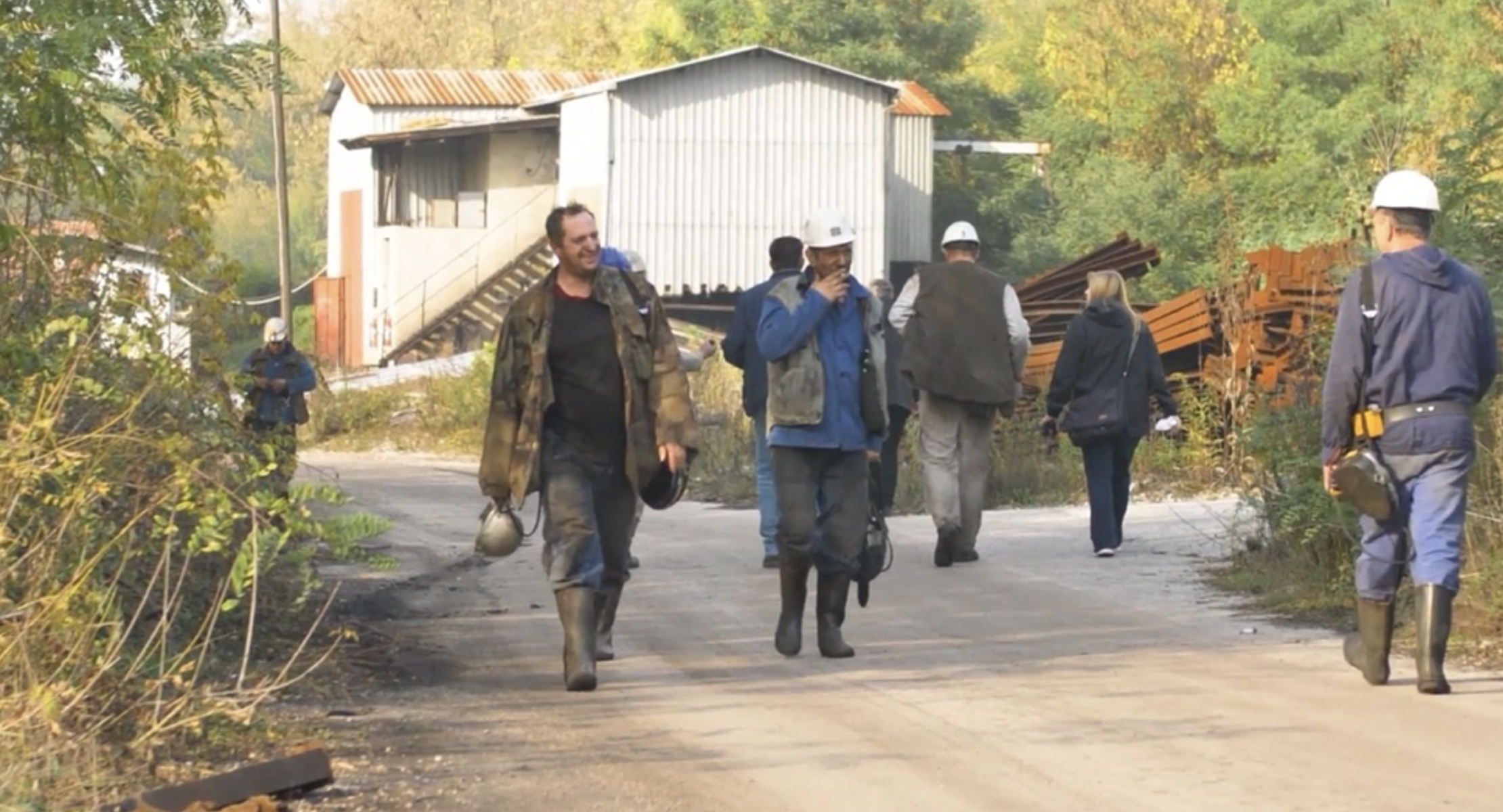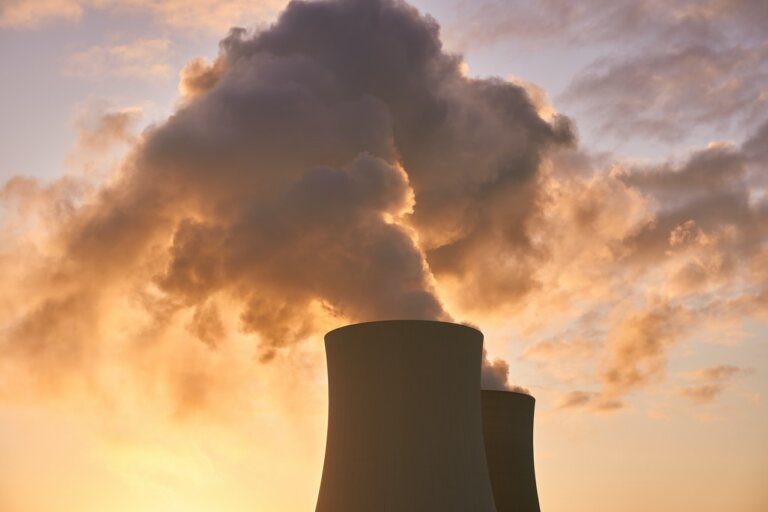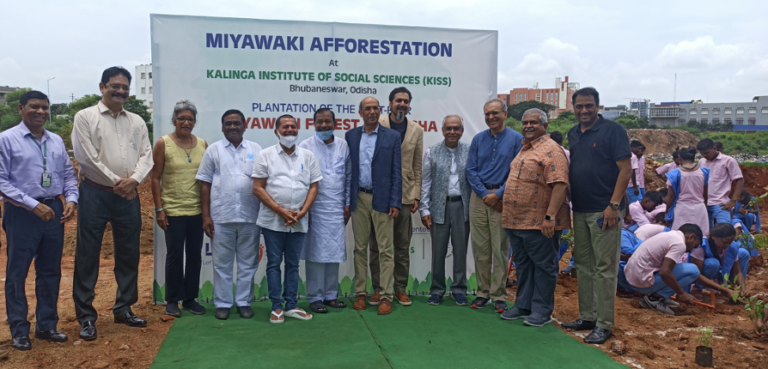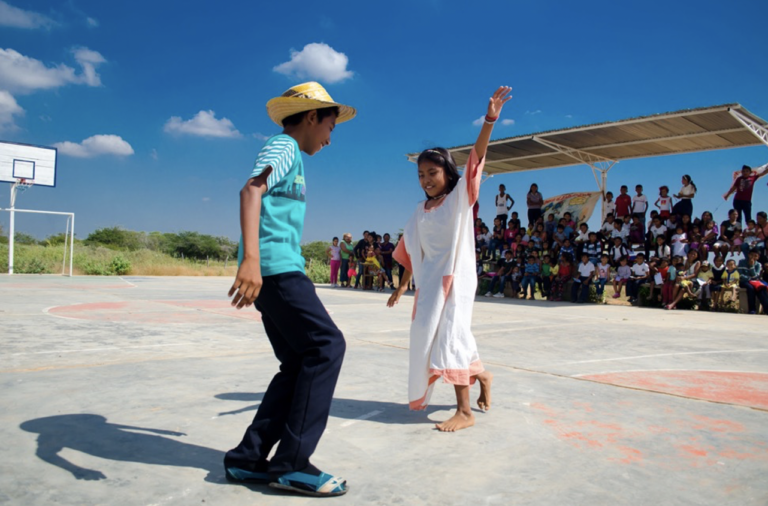The Balkans are defined by fragmented political geographies and diversified spaces. European-oriented cities rise against a forgotten countryside hinting of marginalized communities, migration and missed opportunities. Rural life is difficult, and many residents rely on agriculture or mining for their livelihood.
Most countries in the Western Balkans depend heavily on low-grade lignite coal combustion for their heat and electricity supply, which is degrading the region’s air quality, with several cities under a thick blanket of health-damaging smog for several months each year. Emissions and pollution from outdated facilities and mining practices have harmed the environment, including ecosystem functions and biodiversity, as well as the health and wellness of workers and local communities. According to the CEE Bankwatch Network and the Center for Research on Energy and Clean Air, emissions and pollution from coal-fired power plants caused more than six thousand deaths in the Western Balkans, between 2018 and 2020.
“Western Balkan countries emerged from war twenty years ago. They are grappling with post-conflict politics, poverty, and migration. We cannot expect them to undertake the energy transition alone.” – Lena Bratic, Regional Manager at E3I
Today, Balkan nations are stepping away from coal, and other fossil fuels, in favor of clean energy sources such as wind, solar, hydro, and biomass with the aim of achieving climate goals and improving energy security while – at the same time – creating green jobs. In April 2021, Serbia passed new renewable energy and energy efficiency legislation with the aim of increasing the percentage of electricity produced from renewable energy sources to 40% by 2030. Western Balkan leaders have also committed to a “Green Deal” and emission neutrality by 2050, in addition to air, water, and soil pollution reduction targets.
In the spirit of the Green Deal, a partnership catalyzed by the Global Alliance for a Sustainable Planet and led by CIFOR-ICRAF, together with their new venture, Resilient Landscapes, and E3 International, was established to support climate mitigation, environmental regeneration, clean energy, health, and a just transition championed by the autonomous province of Vojvodina and Governments of Serbia, Bosnia and Herzegovina. The project, known as the “Sustainable Land, Livelihoods and Energy Initiative for the Western Balkans” or SLLEI, aims to deliver solutions that will transform how land and renewable resources are used.
For many small farmers in the Balkans, agriculture is a source of pride and an opportunity for new growth. With this in mind, consortium partners have identified opportunities to produce fast-growing perennial bioenergy crops like willow (salix viminalis), poplar (populus alba), and reed (arundo donax) which can be sustainably cultivated for biomass. Crops such as willow are grown in “short-rotation plantations” or SRPs, which can last up to 25 years and be harvested every other year. The consortium intends to integrate the short-rotation plantations of bioenergy crops with restored permanent forests and treed areas. SRPs would be surrounded by agroforestry borders with tree species that serve as windbreaks, sources of fruit and nut production, bee pollination and more. This landscape approach would improve water and air quality, recover degraded land, regenerate soil, and increase biodiversity and forests cover and soil carbon to sequester more carbon. Bioenergy crops can also be grown adjacent to wind and solar farms to enhance the share of renewables in the energy mix.
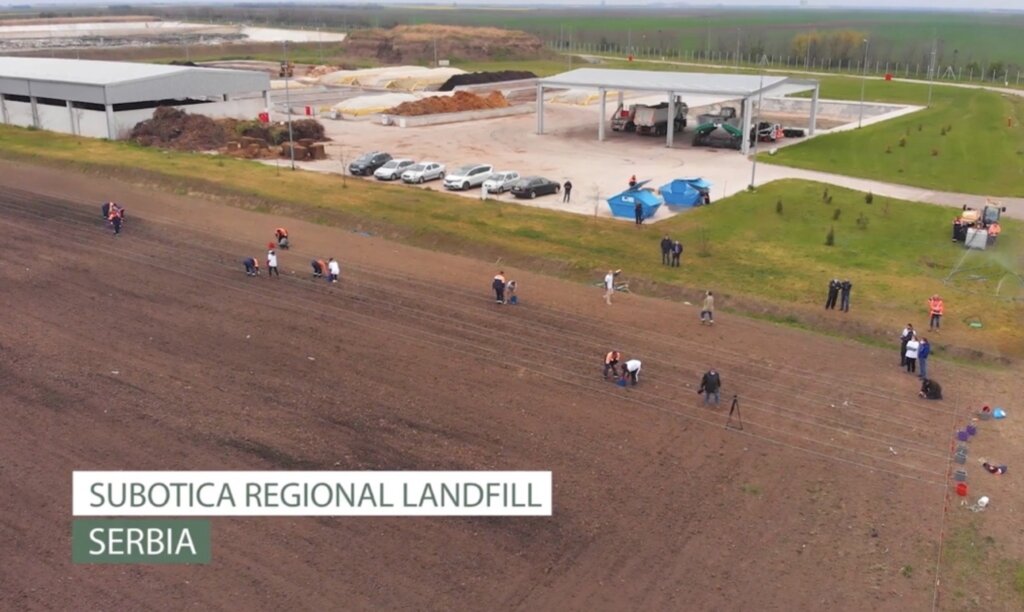
“Bioenergy production is labor-intensive and thus helps create urgently needed jobs. It can also, provide a baseload of stable continuous energy support where wind and solar are subject to seasonal or day-nighttime fluctuations.” – Dr. Christopher Martius, at the Center for International Forestry Research (CIFOR) Germany.
Cultivating bioenergy crops is indeed labor-intensive. For every 50,000 hectares of land, 10,000 jobs are expected to be created for former miners and farmers. Thousands more are expected to be generated in eco- and agritourism, and aligned industries in food, fodder, and pharma production. Nearly half of these jobs could be filled by women and underrepresented or vulnerable groups. Short-rotation wood biomass plantation farming practices build on traditional farming, adding new techniques and technologies, including digitization.
Balkan nations endeavor to install more solar and wind energy. But they can also close the renewable energy gap by increasing their share of energy from woody and reedy biomass sourced from sustainably grown bioenergy crops cultivated on degraded land.
For example, biomass is an important renewable energy source in Serbia, since woody bioenergy crops have an at least 50% greater heat value than coal (lignite). Seventy-five thousand hectares of biofuel plantations (which are planned to be established by 2030) could replace 10% of the country’s current coal-based electricity output. Reedy bioenergy crops can be combined with agricultural waste to produce biogas and support the circular economy in Serbia.
A rural exodus towards urban centers has often resulted in land abandonment or non-use following the “decollectivization” process in the Balkans that began in the early 1990s. The SLLEI initiative aims to bring back wealth and value to the affected areas creating opportunities for governments and communities who can once again make their land more profitable by implementing sustainable, scalable and replicable models.
“The idea is to take a holistic landscape integrated approach to create a bankable investment that also profoundly restores the natural environment” – Bonnie Norman, President of E3I
The Global Alliance for a Sustainable Planet, CIFOR-ICRAF, Resilient Landscapes, and E3 International, working alongside local governments and communities, will promote sustainable natural resource management investment models with the ability to rehabilitate post-conflict areas, ensuring a green and fair transition away from the harmful effects of coal on local communities and the environment.
